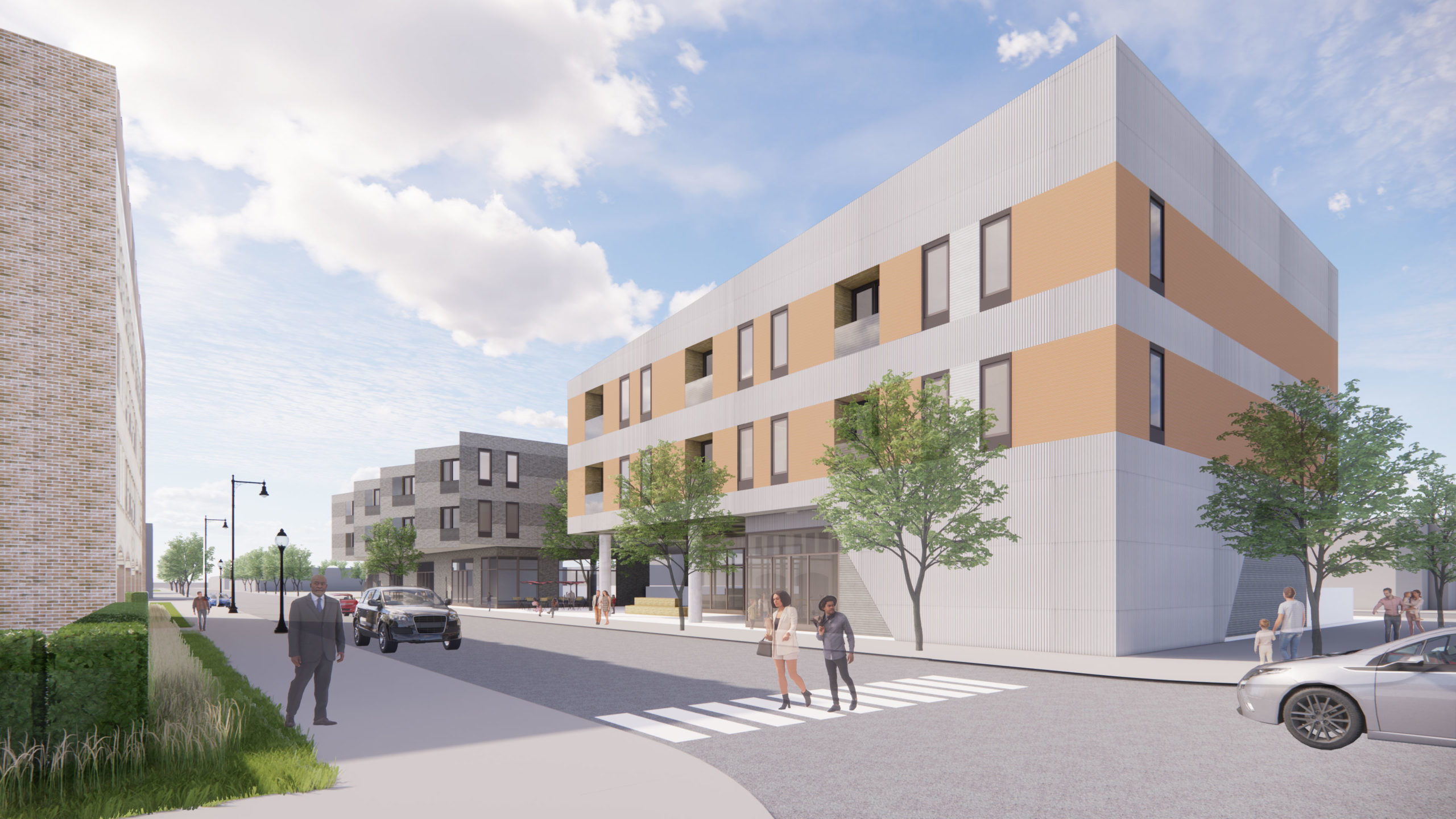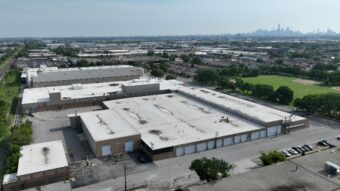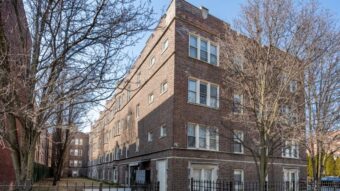The need for more affordable housing in Chicago has long been an issue, and it’s only become more so in the age of mass job losses and economic uncertainty brought by the pandemic. Earlier this year, Mayor Lightfoot and Chicago Department of Planning and Development commissioner Maurice Cox unveiled a series of new projects in underserved and under-invested communities across Chicago in the INVEST South/West program.
One of the proposals selected, Evergreen Imagine, will feature two new affordable mixed-use residential and retail buildings, with one constructed at 79th and Green streets and the second at 79th and Halsted streets. The development was proposed by a partnership between Evergreen Real Estate Group and Imagine Group. David Block, Evergreen’s Director of Development, explains why affordable housing is not only a worthwhile venture in the world of commercial real estate, but how it’s truly a market that is in high demand.
When the list of INVEST South/West developments were announced in March, what was your involvement in the 838 W. 79th Street proposal for Auburn Gresham?
INVEST South/West was an interesting program to us. We read through all of the initial RFP documents that came out and it kind of hit our sweet spot in a number of different ways. We are primarily an affordable housing developer and many of these proposals call for affordable housing. We do a lot of neighborhood economic development work, particularly mixed use type development. And the program was also looking for diverse teams. We have taken as a kind of a point of pride for ourselves that we work with a pretty wide range of diverse partners and architects and consultants. So we ended up teaming up with the Imagine Group and started working through design and a program and assembled a team including Carol Ross Barney in partnership with Nia Architects as the architects. We put a proposal together and, you know, I guess they liked what they saw enough to select us.
In the world of commercial real estate, there is a lot of money in market-rate deals, so why would a developer want to work on affordable housing projects like this?
We at Evergreen have been doing affordable housing for 20 years and I think that it is an interesting little corner of the real estate industry. It’s a corner of the real estate industry that, frankly, I think a lot of commercial developers are a little afraid of because there’s a huge amount of red tape. You’re really getting into public-private partnerships between the project developer and government agencies, whether it’s the City of Chicago or Illinois Housing Development Authority and a lot of developers are just not comfortable working in that way. Their attitude is, ‘I’m going to do what I need to do to get going and get my building permit then work with my bank and I’ll be on my way.’ And when you work on these projects, it’s a bit of a different attitude, which is that I need to listen and take seriously what I’m hearing from the city, from the neighborhood, and from these public agencies, who are in most cases providing most of the funding to make these projects work.
When we talk about being deferential or diplomatic, a lot of times at public meetings for proposed developments there’s this language used or idea conveyed that a developer could have built much higher or bigger but aren’t for the sake of honoring neighboring concerns. Is it simply political where the alderman wants a success story and the developer is along for the ride?
I’m guilty of being as cynical as the next guy about certain things, but I also believe that there is real value in bringing change to a community that needs it and wants it, and I think that’s what INVEST South/West has done. It has identified areas of the city where the community is really hungry for something new and positive to happen and some real investment to happen. And because Chicago is so big and spread out there are so many opportunities for developers to go in places that have had more investment over the years, but there are also plenty of disinvested corners of Chicago where I think there’s a real kind of fairness argument. It’s an equity argument that says, you know, it’s now the turn of this neighborhood to get its share of investment, and that means construction jobs and that potentially means permanent jobs. And that means new affordable housing that leads to an increase to the tax base. I think that it’s really the job of political leaders to look beyond cynicism and to say I am going to take a stand, and I’m going to do something, and you can agree with me or not, but this is what I am doing as a leader.
And then there are some other equity themes, you could say about that, too, right? Such as affordable housing doesn’t mean that people can’t have good design, or amenities or things of that sort.
Well, that’s absolutely right. And that’s a big part of why I think Maurice Cox, who is also an architect, is so heavily focused on design as part of his approach to the INVEST South/West program. We wanted to send the message in responding to this RFP, to Lori Lightfoot to Maurice Cox, that at Evergreen, we are all willing to step up and be part of the solution. Yes, it’s our business, but it’s also a big part of our civic role as citizens of Chicago that we can help make those positive changes happen.
When we look at affordable housing, how do we view the role of investors in these developments?
There are different motivations for the investors and for the developers in these projects. Conventional equity investors are typically looking to maximize their return, so they will look for ways to do that while minimizing their risk. And for investors in low income housing projects, it’s not that different, in the sense that the investors are looking to create a decent return with minimal risk, but I think the investors in affordable housing projects are even more cautious because they tend to be very large institutions instead of wealthy family offices or pension funds. They are often regulated entities, so there’s only so much they can do with their capital. They tend to be very cautious in how they’re underwriting, so typically, affordable housing projects are very cautiously designed. They’re designed to have expenses increase faster than revenue, they’re designed to have all kinds of reserves as backstops if things go wrong, and they’re designed to offer a discount to market rents, whereas a typical developer is always looking to push the market rents and say, ‘I think if I offer a dog spa, I can get 10% more than market rent here,’ as where affordable housing developers don’t think that way.
Going forward, how important will affordable housing continue to be in Chicago and elsewhere?
I’ve been doing affordable housing for more than 20 years, and it’s only in the last five or six years that there really has been this kind of a conversation in the air about affordable housing. I think it’s maybe a function of the huge income disparities that we’re seeing in this country and the kind of winner take all cities like New York, San Francisco, DC and Boston where people are waking up to realize, ‘Hey, you know, my quality of life is being affected.’ If people can’t afford to live in my city, who’s going to drive my kids’ school bus and who’s gonna pour my coffee and who’s going to serve as the reading teachers in my kids schools? I think people are beginning to realize that a healthy society requires housing as a good, and it can’t be the kind of thing where only the rich people get to live in the center city.




